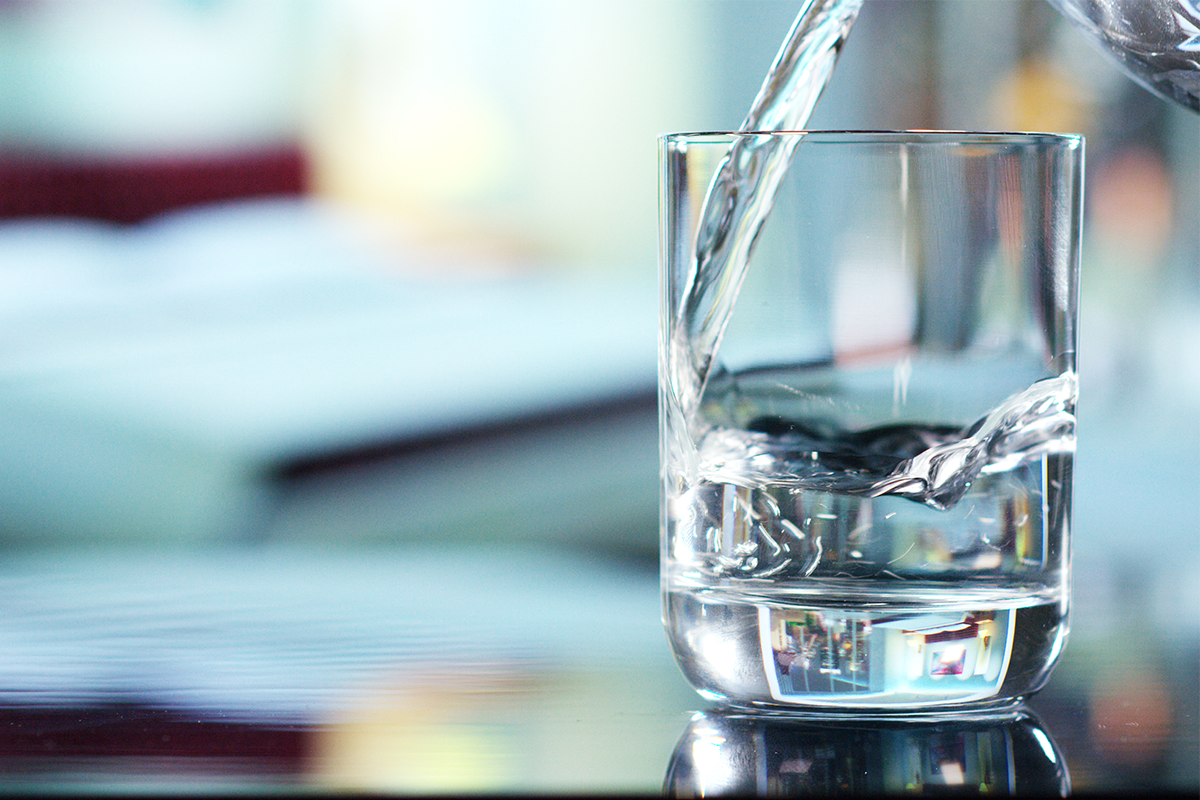60% of our bodies are water.
It’s a fascinating fact, but it doesn’t answer the big question: Why is it important to drink water? And how much do we need?
“Every single reaction that occurs in your body requires water,” says Melissa Perry, registered dietitian-nutritionist for BlueCross BlueShield of Tennessee. “Your muscles contracting, heart beating, digesting food —these reactions use water. Water helps lubricate joints and regulate body temperature. It also helps prevent uncomfortable reactions like constipation, kidney stones and urinary tract infections (UTI).”
1. How much water do we really need a day?
Perry: It depends on the person, but the Academy of Medicine recommends:
- 9 cups (or 72 ounces) for most women, and
- 13 cups (or 104 ounces) for most men.
Hydration needs are individual and also depend on:
- Height and weight (larger bodies need more water)
- Activity level (the more you sweat, the more water you need to replace)
- Climate (the higher the temperature and altitude, the more water you need)
- Temporary health conditions (pregnancy, breastfeeding, diarrhea, vomiting)
- Chronic health conditions
There are certain conditions that could increase – or decrease the body’s need for water.
Conditions that increase the need:
- diabetes
- eating disorders
- GI issues
- alcoholism
Conditions that decrease the need:
- renal issues
- congestive heart failure
In those cases, providers will monitor you to prevent fluid retention and electrolyte imbalance.
2. What happens if you don’t drink enough water?
Perry: Severe dehydration can cause seizures, heart issues and other problems that require hospitalization.
Mild dehydration has uncomfortable consequences:
- Constipation
- Kidney problems (UTI, kidney stones)
- Headaches
- Inability to concentrate
- Changes in mood
- Slower reflexes
Studies show that your brain and heart are 73% water. So even mild dehydration — a decrease of 1-2% in the brain — can affect your mental clarity, mood and reflexes.
3. Can you drink too much water?
Perry: It’s rare to be over-hydrated. However, it is possible for athletes or anyone exercising for prolonged periods of time to hydrate incorrectly. This can cause confusion and loss of coordination. When that happens, it’s usually because they’re drinking water without replenishing electrolytes.
Electrolytes are essential minerals — sodium, potassium, calcium. These facilitate functions such as your heart beating and muscles moving. We lose electrolytes through sweat. And if we drink more water but don’t replenish those electrolytes, our balance can get thrown off. A good rule is that if you’re doing strenuous exercise for an hour or more, you probably need a sports drink to replenish your electrolytes.
4. How can you tell if you’re drinking enough water?
Perry: Dry mouth and constant thirst are both signs, but the easiest way to tell is to look at the color of your urine. In general:
- Pale urine = hydrated
- Dark urine = dehydrated
Be aware that certain vitamins and supplements, such as B complex, can alter the color of your urine.
5. Any tips for drinking more water?
1. Add flavor or fizz.
Infuse water with fruit, add a squeeze of citrus or try fizzy water. There are some studies about the negative effects of carbonation, but you have to drink a lot for that to apply, so it’s fine in moderation. The same is true of liquid or powdered sugar-free drink mixes. We’ve got to pick our battles! If the choice is not drinking water vs. drinking water mixed with a sugar-free drink mix, take the option where you drink the water!
2. Set an alarm.
For some people, drinking water is simply a matter of remembering to do it. Set an alarm to remind you a few times a day.
3. Serve water with meals.
Drinking water with your meal aids digestion and helps clear your mouth of bacteria. Drinking it in place of sugary soda or juice also helps you taste the food better. And it can help you feel more full and satisfied.
4. Eat more fruits, veggies, soups and broths.
We get about 20% of our fluids through food. Increase your water intake by eating fruits and vegetables that contain a lot of water (lettuce, cucumber, zucchini, melon). And include more fruit in snacks and meals for kids. Low-sodium soups and broths are also a good option for added hydration.
5. Buy a refillable you love.
Invest in a water bottle or insulated cup, and keep it filled up and with you all the time. Let kids pick out or decorate their own water bottles. Kids are actually better than adults at listening to their bodies. So try to drink water every time you see your child doing it and you’ll probably increase your intake!
More from WellTuned on water
Yes, you can get dehydrated in the winter
Get more information about specific health terms, topics and conditions to better manage your health on bcbst.com. BlueCross BlueShield of Tennessee members can access wellness-related discounts on fitness products, gym memberships, healthy eating and more through Blue365®. BCBST members can also find tools and resources to help improve health and well-being by logging into BlueAccess and going to the Managing Your Health tab.





